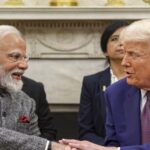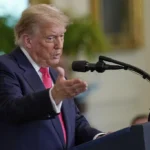
- India’s Ministry of External Affairs (MEA) responded to US sanctions on 19 Indian companies accused of aiding Russia amid the Ukraine conflict, stating the companies are not violating Indian laws.
- The MEA emphasized India’s commitment to non-proliferation, noting membership in key export control regimes and compliance with United Nations Security Council (UNSC) sanctions.
- India is working with relevant departments to update companies on export control regulations and is in communication with the US to clarify issues.
How Could These Sanctions Affect India-US Relations Amid Rising Diplomatic Tensions?
The recent US sanctions on 19 Indian firms for alleged ties with Russia reflect growing diplomatic sensitivities between the US and India. The companies, including Ascend Aviation India Private Limited and Mask Trans, are accused of supplying equipment like aircraft components to Russian firms. India, however, asserts that these transactions are within the bounds of Indian law, underlining that it has a stringent regulatory framework for strategic trade and non-proliferation, reinforced by membership in regimes such as the Wassenaar Arrangement and Australia Group.
In a broader context, these sanctions follow an unrelated diplomatic issue in which an Indian official was allegedly implicated in a foiled murder-for-hire plot targeting Khalistani separatist Gurpatwant Singh Pannun. Together, these incidents signal an increasingly complex diplomatic landscape. India’s statement highlights that while it maintains its export control obligations, it will continue discussions with the US to clarify issues around these sanctions.
India’s Commitment to Strategic Compliance
India has reiterated its dedication to non-proliferation, carrying out outreach programs to educate companies on export controls. The MEA’s efforts to bridge understanding underscore India’s intention to adhere to international norms while advocating for the interests of its businesses.




































Leave a Reply